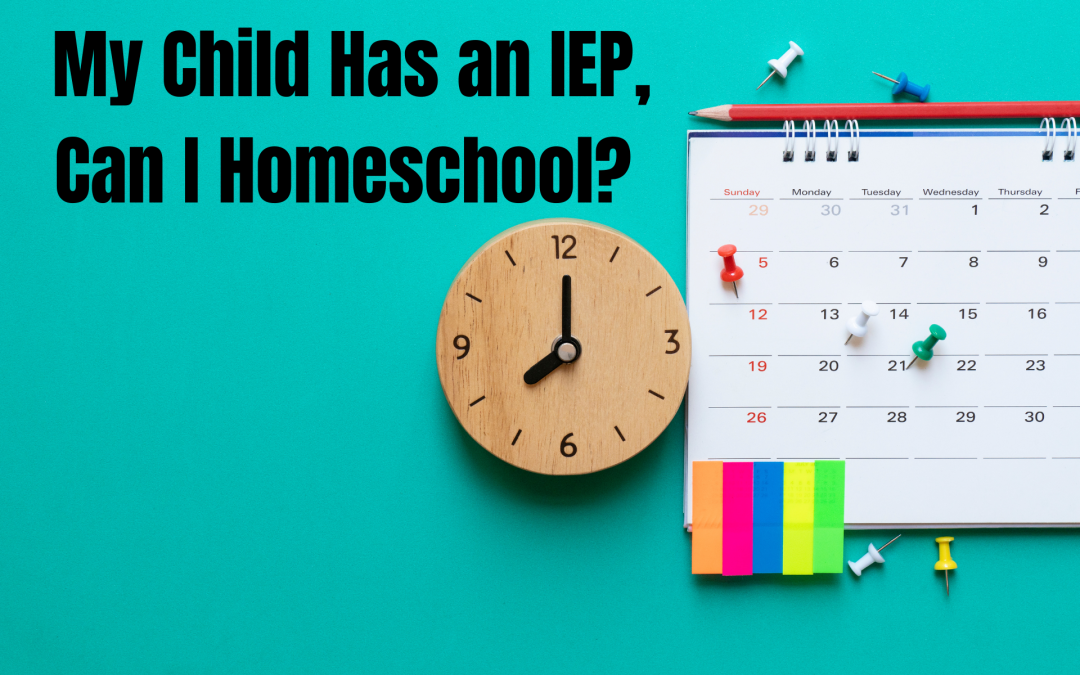Homeschooling is often a tough decision to make, whether your child is in Kindergarten or in their Junior year of high school. You wonder, will I be able to keep my child on a schedule and what kind of homeschool teacher will I be? This decision can be made even tougher if your child currently has an IEP.
An IEP is an abbreviation for Individualized Education Plan, it is intended to ensure that students who have different abilities and needs are able to receive the services they need to succeed in school. For instance, students with IEPs may receive speech therapy, behavior therapy, extended time, and have specific goals to meet by a predetermined time. There are 13 disabilities that classify a student for an IEP under the law.
You may wonder how to implement my child’s student’s IEP during home school? Will there be consequences if you do not write up or follow an IEP during your homeschool cohort? Or the ever pressing question for some students, when should I move forward and get them evaluated? Take a deep breath, and keep reading.
IEP Laws for Homeschool
The short answer is: you don’t. Under IDEA (Individuals with Disabilities Education Act) a federal law states that schools systems must find, and evaluate students with disabilities. However, the implementation of this law from state to state varies so be sure to do research on the state where you live and will be homeschooling. This variation is due to IDEA not stating explicitly on how the school system must provide these services. Some states may not provide a traditional IEP with goals, dates and set re-evaluation times. Some states will provide students with a service plan instead.
These services can be provided at the school and scheduled for specific times and dates where the student will travel to their assigned school and receive services. In some cases, the school can refuse to provide these services on a schedule that is beneficial to the homeschool family and request that the student be re-enrolled or enrolled in a physical public or private school.
Still wondering how to actually get these services? Before your child or students can receive an evaluation, a written IEP or services from your local school system you will need to produce a written request to have your child evaluated, if the school does not contact you first. Then, you
will need to give parental consent for each step of the evaluation process. The evaluation process can be long, exhausting and extensive depending on the severity of your child’s needs and the state laws that bound the school to your homeschooled child. Once approved to move forward
with the official drafting of the IEP, you will begin to map out the schedule that works best for your child/student and their local school district.
As a homeschooling parent do not be afraid to advocate for your child. One of the biggest reasons that families choose homeschool is to cultivate an environment that is stimulating and comforting to their child. Do not be afraid to homeschool your child because of their disability, they can still benefit from the homeschool environment and get the services they need.
